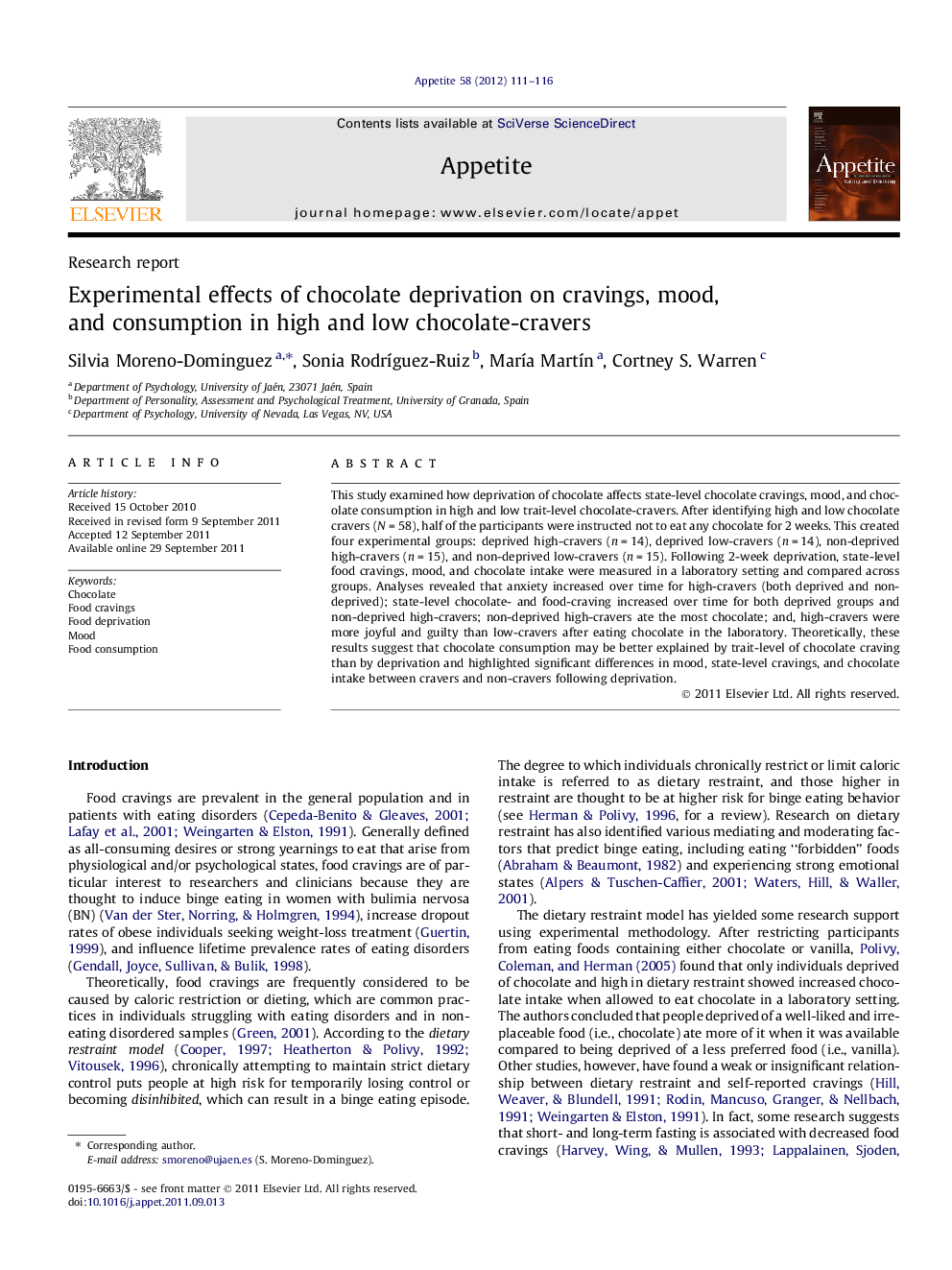| Article ID | Journal | Published Year | Pages | File Type |
|---|---|---|---|---|
| 940333 | Appetite | 2012 | 6 Pages |
This study examined how deprivation of chocolate affects state-level chocolate cravings, mood, and chocolate consumption in high and low trait-level chocolate-cravers. After identifying high and low chocolate cravers (N = 58), half of the participants were instructed not to eat any chocolate for 2 weeks. This created four experimental groups: deprived high-cravers (n = 14), deprived low-cravers (n = 14), non-deprived high-cravers (n = 15), and non-deprived low-cravers (n = 15). Following 2-week deprivation, state-level food cravings, mood, and chocolate intake were measured in a laboratory setting and compared across groups. Analyses revealed that anxiety increased over time for high-cravers (both deprived and non-deprived); state-level chocolate- and food-craving increased over time for both deprived groups and non-deprived high-cravers; non-deprived high-cravers ate the most chocolate; and, high-cravers were more joyful and guilty than low-cravers after eating chocolate in the laboratory. Theoretically, these results suggest that chocolate consumption may be better explained by trait-level of chocolate craving than by deprivation and highlighted significant differences in mood, state-level cravings, and chocolate intake between cravers and non-cravers following deprivation.
► Literature suggests that important differences exist between cravers-no cravers. ► It is examined how chocolate deprivation affect craving-consumption in high-low cravers. ► Food-craving increased in all deprived and non-deprived high-cravers. ► Non-deprived high-cravers ate the most chocolate. ► Chocolate consumption is better explained by trait-level of craving than deprivation.
